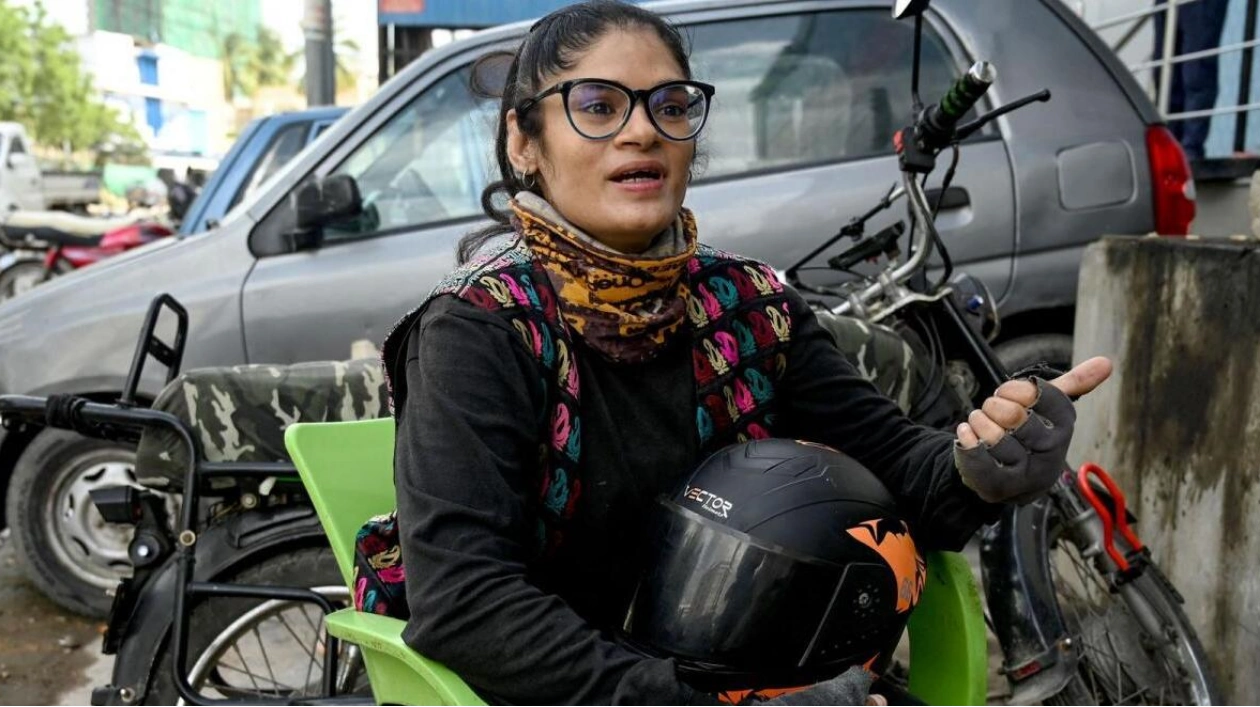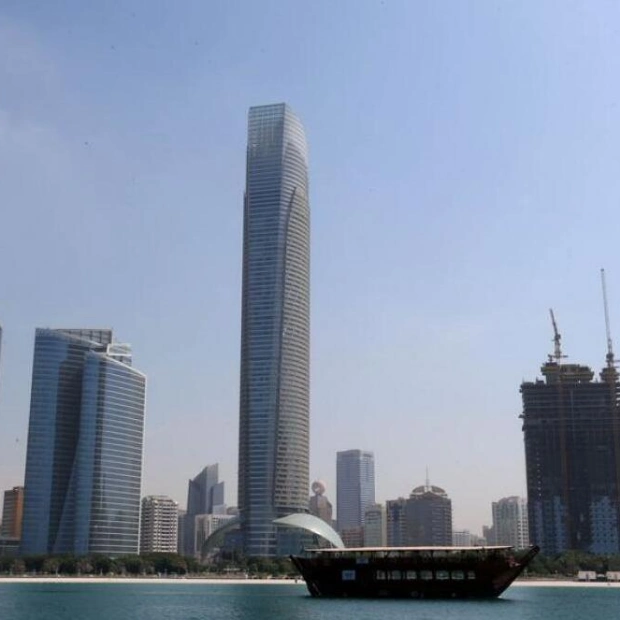Amina Sohail navigates through dense traffic to collect her next passenger—a woman on a motorcycle eliciting curious glances in Karachi, Pakistan's bustling megacity. At 28, she is the first woman in her family to join the workforce, a trend emerging in urban households facing mounting financial strain in Pakistan.
"I don't pay attention to people, I don't engage in conversation or respond to honking, I just do my job," said Sohail, who started working for a local ride-hailing service earlier this year, transporting women through the city's dusty backstreets. "Before, we often went hungry, but now we manage to eat two to three meals a day," she added.
Pakistan is mired in a cycle of political and economic crises, relying on IMF bailouts and loans from friendly nations to manage its debt. Prolonged inflation has doubled the price of basic groceries like tomatoes, while electricity and gas bills have surged by 300% compared to July last year, according to official data.
Sohail used to assist her mother with cooking, cleaning, and caring for her younger siblings until her father, the family's sole breadwinner, fell ill. "The atmosphere at home was tense," she recalled, with the family relying on financial help from relatives. "That's when I decided I had to work." "My outlook has changed. I will work openly like any man, regardless of what others think."
Pakistan was the first Muslim country to be led by a female prime minister in the 1980s, and women CEOs are featured in Forbes magazine's power lists. They now occupy positions in the police and military. However, much of Pakistani society adheres to a traditional code that requires women to obtain family permission to work outside the home.
According to the United Nations, only 21% of women participate in Pakistan's workforce, with most employed in the informal sector and nearly half working in rural areas.
Hina Saleem, a 24-year-old telephone operator at a leather factory in Karachi's largest industrial area, Korangi, said, "I am the first girl in the family to work, from both my paternal and maternal sides." Her decision, supported by her mother after her father's death, faced resistance from her extended family. Her younger brother was cautioned that working could lead to socially unacceptable behavior, such as choosing her own husband.
At the factory's shift change, workers arrive in brightly painted buses adorned with jingling bells, with a few women stepping out among the sea of men. Nineteen-year-old Anum Shahzadi, who works in the same factory inputting data, was encouraged by her parents to join the workforce after high school, unlike previous generations.
Bushra Khaliq, executive director of Women In Struggle for Empowerment (WISE), which advocates for women's political and economic rights, noted that Pakistan is "witnessing a shift" among urban middle-class women. "Up until now, society has told them that caring for their homes and marriage were the ultimate goals," she said. "But economic hardship and social crises bring many opportunities."
Farzana Augustine, from Pakistan's minority Christian community, earned her first salary at 43 after her husband lost his job during the Covid-19 pandemic. "My wife had to step up," Augustine Saddique explained. "But it's nothing to be sad about; we are partners running our household together."
Karachi, a sprawling port metropolis officially home to 20 million but likely many more, is Pakistan's business hub, attracting migrants and entrepreneurs with the promise of employment and often serving as a barometer for social change. Nineteen-year-old Zahra Afzal moved to Karachi four years ago to live with her uncle after her parents' death, leaving her village in central-eastern Pakistan to work as a childminder.
Afzal's uncle, Kamran Aziz, said, "If Zahra had gone to other relatives, she would have been married off by now." From their typical one-room home, where bedding is folded away in the morning and cooking is done on the balcony, he and his wife decided to raise their girls to be self-sufficient before settling them down. Afzal beams with pride, seeing herself as an example for her sister and cousin: "My mind feels refreshed."






